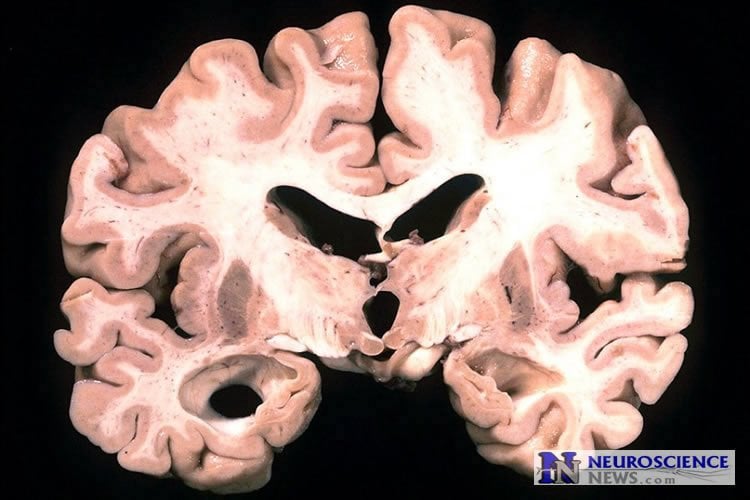The use of proton pump inhibitors, the popular medications used to treat gastroesophageal reflux and peptic ulcers, may be associated with an increased risk of dementia in a study using data from a large German health insurer, according to an article published online by JAMA Neurology.
The use of proton pump inhibitors (PPIs) has increased among older patients and PPIs are among the most frequently used classes of drugs.
Britta Haenisch, Ph.D., of the German Center for Neurodegenerative Diseases, Bonn, Germany, and coauthors examined the association between the use of PPIs and the risk of dementia using data from 2004 to 2011 on inpatient and outpatient diagnoses and drug prescriptions. Regular PPI use was at least one PPI prescription in each quarter of an 18-month interval.
The study population included 218,493 individuals 75 or older before 144,814 individuals were excluded, leaving 73,679 individuals included in the final analysis. The authors identified 29,510 patients who developed dementia during the study period.

Regular users of PPIs (2,950 patients, mostly female and average age nearly 84) had a 44 percent increased risk of dementia compared with those (70,729 patients, mostly female and average age 83) not receiving PPI medication, according to the results.
Limitations to the study include the authors only being able to integrate some other risk factors for dementia into the analysis from the data.
“The present study can only provide a statistical association between PPI use and risk of dementia. The possible underlying causal biological mechanism has to be explored in future studies. To evaluate and establish direct cause and effect relationships between PPI use and incident dementia in the elderly, randomized, prospective clinical trials are needed,” the study concludes.
Source: Britta Haenisch – JAMA Network
Image Source: The image is in the public domain.
Original Research: Abstract for “Association of Proton Pump Inhibitors With Risk of Dementia: A Pharmacoepidemiological Claims Data Analysis” by Willy Gomm, PhD; Klaus von Holt, MD, PhD; Friederike Thomé, MSc; Karl Broich, MD; Wolfgang Maier, MD; Anne Fink, MSc; Gabriele Doblhammer, PhD; and Britta Haenisch, PhD in JAMA Neurology. Published online February 15 2016 doi:10.1001/jamaneurol.2015.4791
Abstract
Association of Proton Pump Inhibitors With Risk of Dementia: A Pharmacoepidemiological Claims Data Analysis
Importance Medications that influence the risk of dementia in the elderly can be relevant for dementia prevention. Proton pump inhibitors (PPIs) are widely used for the treatment of gastrointestinal diseases but have also been shown to be potentially involved in cognitive decline.
Objective To examine the association between the use of PPIs and the risk of incident dementia in the elderly.
Design, Setting, and Participants We conducted a prospective cohort study using observational data from 2004 to 2011, derived from the largest German statutory health insurer, Allgemeine Ortskrankenkassen (AOK). Data on inpatient and outpatient diagnoses (coded by the German modification of the International Statistical Classification of Diseases and Related Health Problems, Tenth Revision) and drug prescriptions (categorized according to the Anatomical Therapeutic Chemical Classification System) were available on a quarterly basis. Data analysis was performed from August to November 2015.
Exposures Prescription of omeprazole, pantoprazole, lansoprazole, esomeprazole, or rabeprazole.
Main Outcomes and Measures The main outcome was a diagnosis of incident dementia coded by the German modification of the International Statistical Classification of Diseases and Related Health Problems, Tenth Revision. The association between PPI use and dementia was analyzed using time-dependent Cox regression. The model was adjusted for potential confounding factors, including age, sex, comorbidities, and polypharmacy.
Results A total of 73 679 participants 75 years of age or older and free of dementia at baseline were analyzed. The patients receiving regular PPI medication (n = 2950; mean [SD] age, 83.8 [5.4] years; 77.9% female) had a significantly increased risk of incident dementia compared with the patients not receiving PPI medication (n = 70 729; mean [SD] age, 83.0 [5.6] years; 73.6% female) (hazard ratio, 1.44 [95% CI, 1.36-1.52]; P < .001).
Conclusions and Relevance The avoidance of PPI medication may prevent the development of dementia. This finding is supported by recent pharmacoepidemiological analyses on primary data and is in line with mouse models in which the use of PPIs increased the levels of β-amyloid in the brains of mice. Randomized, prospective clinical trials are needed to examine this connection in more detail.
“Association of Proton Pump Inhibitors With Risk of Dementia: A Pharmacoepidemiological Claims Data Analysis” by Willy Gomm, PhD; Klaus von Holt, MD, PhD; Friederike Thomé, MSc; Karl Broich, MD; Wolfgang Maier, MD; Anne Fink, MSc; Gabriele Doblhammer, PhD; and Britta Haenisch, PhD in JAMA Neurology. Published online February 15 2016 doi:10.1001/jamaneurol.2015.4791







